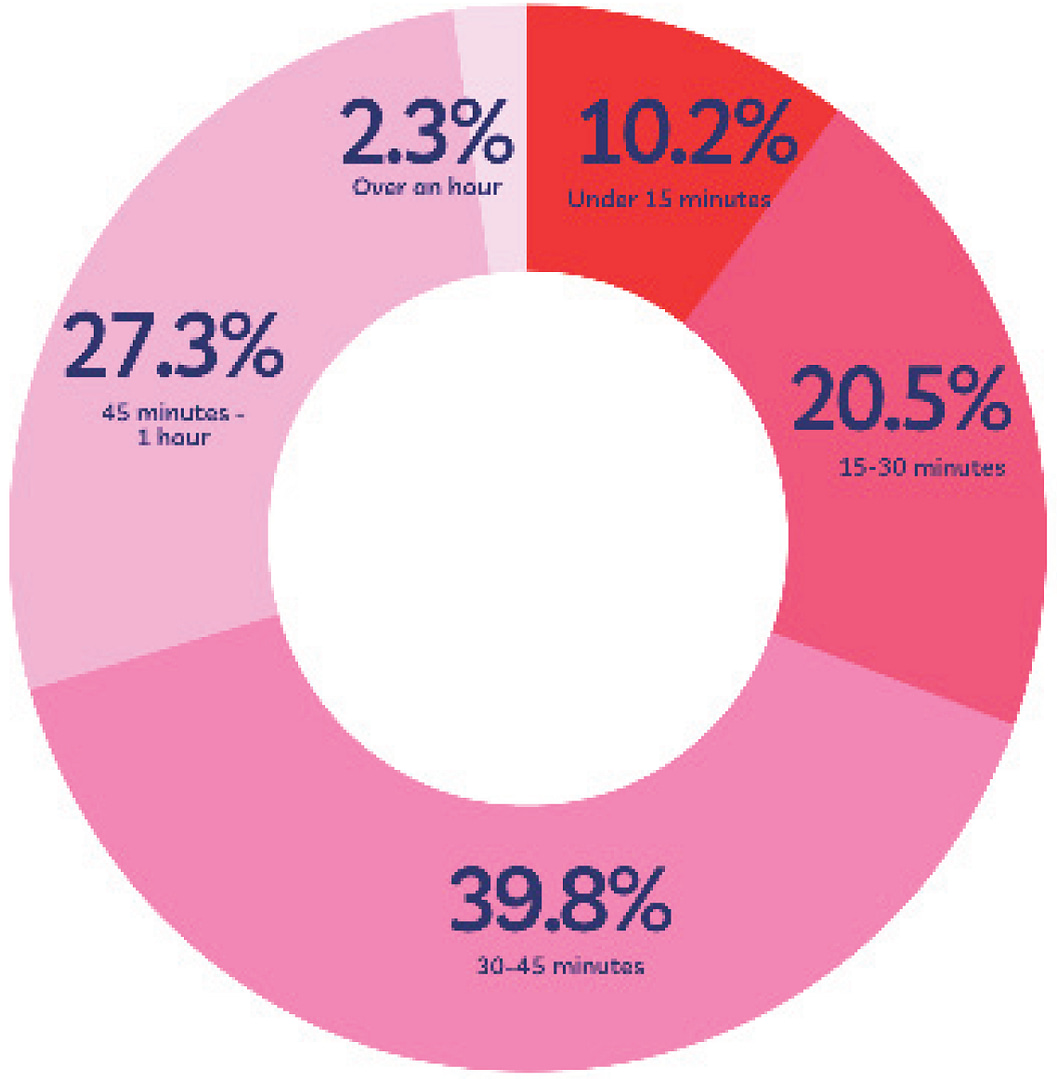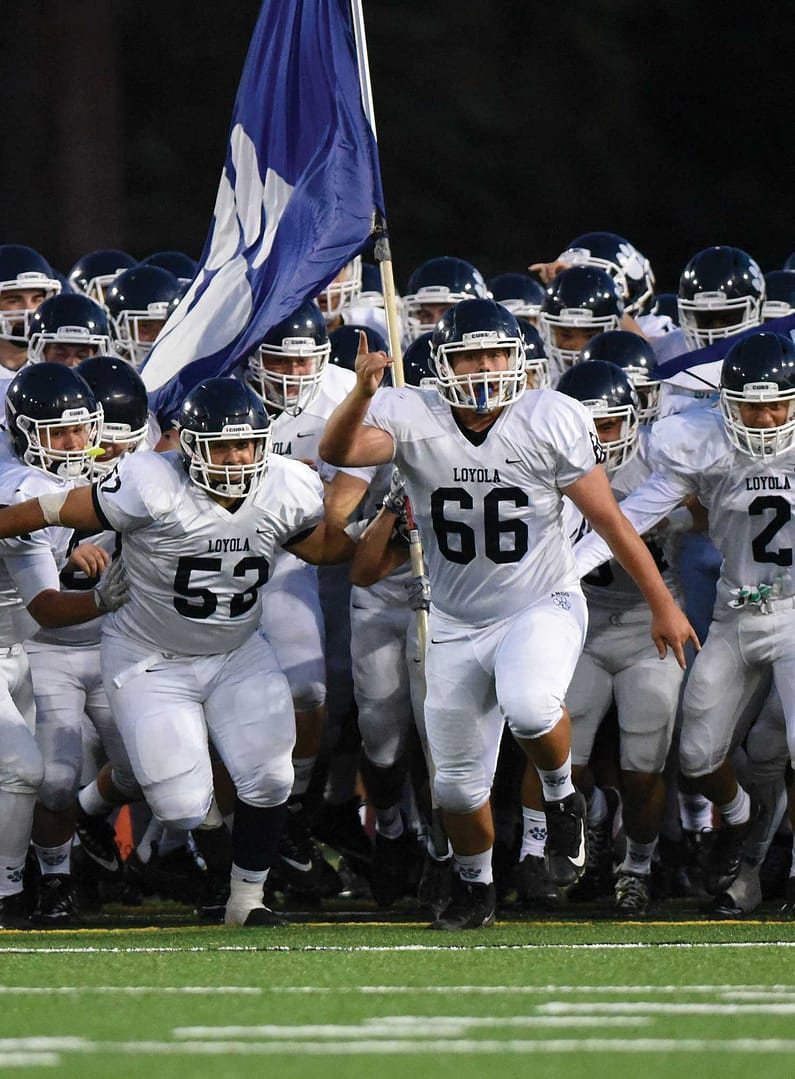From July 13 to Aug. 6, Loyola collaborated with Marlborough in its first ever joint “Exploration in Entrepreneurship and Social Justice” course taught by Javier Espinoza, Head of the Community Partnership Program and Marlborough teacher. The course worked in coalition with Marlborough’s Social Justice Department, Loyola’s Office of Equity and Inclusion and the Center of Service and Justice. Eight students from each school were selected to participate in this program.
Director of Faculty and Head of the Office of Equity and Inclusion Jamal Adams said, “I always think it’s interesting to build leadership in a peer group. This course is so important because it models the opportunity that schools have to create a cross institutional coalition. In forward thinking, the idea of learning from kids from different backgrounds and contexts will truly show what education is about. Both our Loyola and Marlborough group are diverse, and this was an authentic and genuine experience for the students.”
Stemming from Loyola’s Words Matter event, Loyola’s partnership with Marlborough has been maintained extensively through Pamela Wright, Marlborough’s Dean of Social Justice and Community Partnerships. Although it was meant to be an on-campus summer course, the program was adapted to an online environment where students were able to discover their passions for social justice and further their education through entrepreneurship.
Director of the Center of Service and Justice Jesse Rodriguez stated, “First and foremost, this course is an opportunity to engage in partnership in learning with other students outside of our community. It is an opportunity for students to explore the intersectionality between business and social justice. We talk about what it means to be an agent of change, and this course creates a space where students can learn to make a comfortable living while still making a difference in the world, which is phenomenal.”
Participating students learned to recognize the connection between the evolving business world and the need for social change in government, economy, and society as a whole.
Senior Gaurav Law said, “This course was important to me because I got to learn new perspectives on several social justice issues. At an all boys school, we tend to forget that there is most likely another side and new perspectives. It was really nice to not only learn new insights, but also to just meet new people.”
The course included eight virtual meetings consisting of content relating to the development of original social enterprises, practical skills and the impact of social change. These sessions took place every Monday and Thursday each week from 1:00 p.m. to 2:30 p.m.
Marlborough junior and student in the course Dani Winkler, says, “It is really important for young men and women to collaborate with each other when discussing prevalent social issues. Something that is stressed a lot in the media is division, and I think that there is a lot of divide in our nation, whether it is in politics, gender, religion, etc. However, when you have courses like ours, you are forced to confront other people’s perspectives and learn from them.”
During class, students engaged in complex conversations about prevalent social justice issues of today’s world. Topics revolved around the understanding of patriarchy, racial injustice, gender roles and other significant current issues.
Marlborough junior Hannah Corwin states, “For me, learning about systems of white supremacy was the most impactful topic. Mr. Espinoza went into great detail about how although we often hear statistics surrounding the difference between male and female wages, we often do not focus on how race plays a huge role in these differences as well. For example, staggering differences in a white paycheck, black, latinx, etc. are rarely brought to the surface during conversations surrounding wage inequality and disparity. Our class’s discussion of this topic affected me by putting into perspective where I lie on the wide range and spectrum of privilege.”
While the first half of the program primarily focused on education about current social justice issues, the latter half centralized on how entrepreneurship and social justice can work hand in hand when developing a business. Students created blueprints for their own social enterprises and shared them with the class and faculty members.
Marlborough junior Emma Zafari said, “I definitely think that social justice and entrepreneurship should always coincide with one another. When building a company, one should build it in a way that lifts people up and creates opportunities for equity because you shouldn’t have unethical business practices. Having awareness of social justice when creating a business is always helpful no matter what you want to pursue. Learning about these social justice issues will help you become a part of a solution rather than further a problem.”
Both Loyola and Marlborough hope to collaborate more extensively with each other in forthcoming events. Faculty viewed this project as successful and will continue to plan and host more courses similar to the “Exploration in Entrepreneurship and Social Justice.”
Adams said, “We have many events that we are planning for this school year and in the future. My goal is to not only interact with Marlborough more, but also with the other Jesuit schools on the West Coast in events like ‘Words Matter.’ I hope that we continue to expand the idea of partnership and collaboration. This would be a well-lived year if we can do more of that.”






Comments are closed.